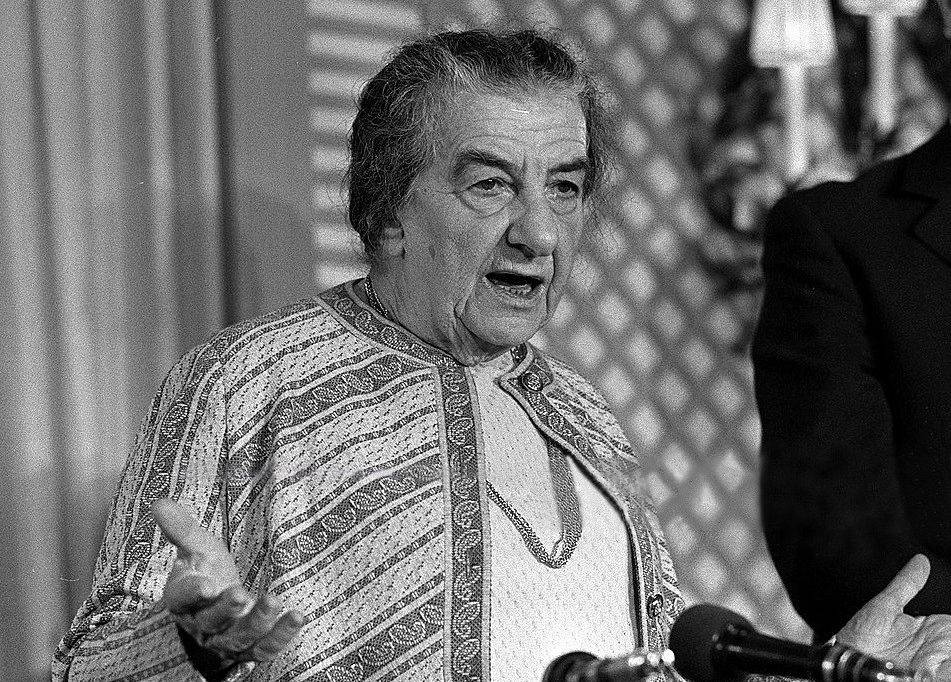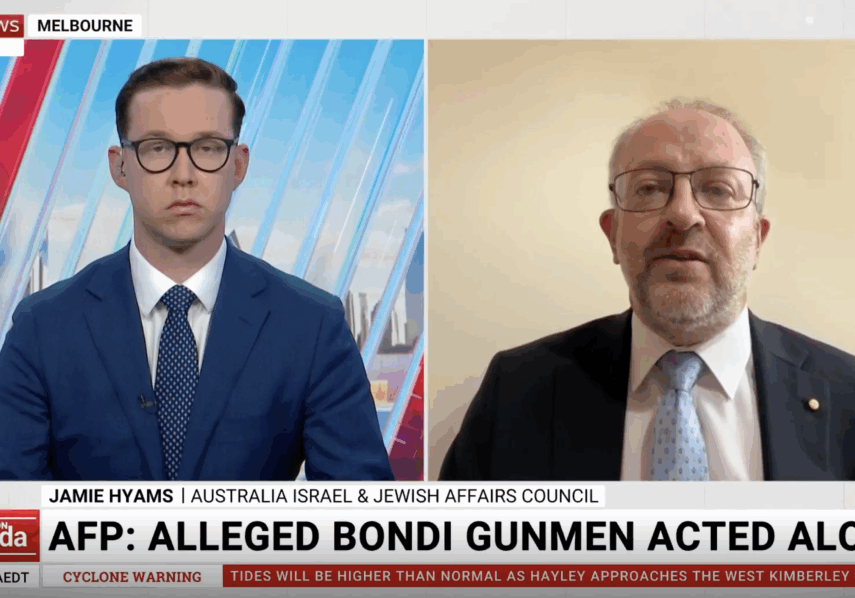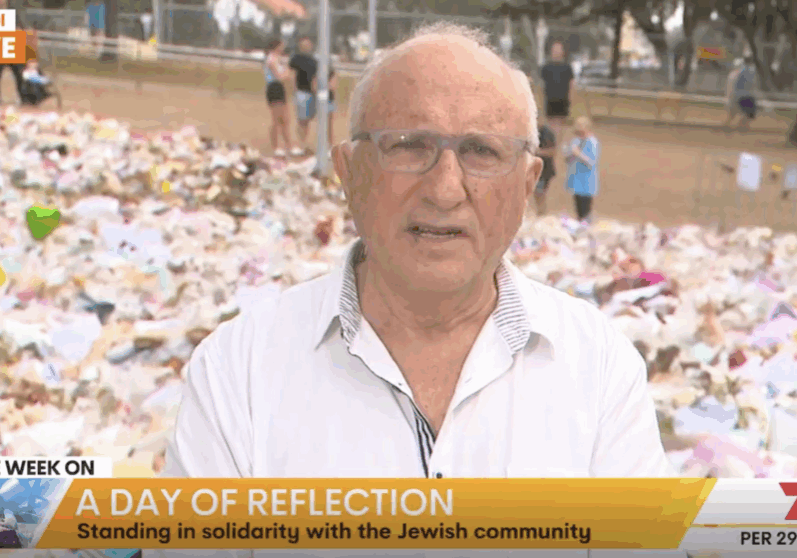FRESH AIR
When Golda met Jordana – the ABC offers tarnished history
July 29, 2021 | Allon Lee

As a taxpayer funded broadcaster, the ABC has an obligation to verify that material which goes out under the ABC banner is fair and balanced – as the Code of Practice the ABC developed for itself says.
It is also required to make a full disclosure if and when potential conflicts of interest arise.
This includes informing ABC consumers when a badly flawed and often factually dubious historical piece about former Israeli prime minister Gold Meir, published on the ABC website and cross promoted by ABC Radio National “Saturday Extra”, is written by a local anti-Israel activist.
On July 17, this is exactly what happened with Dr Jordana Silverstein, whose article on Meir only said she is “a historian at the University of Melbourne.”
Silverstein’s political activism includes supporting boycotting Israeli settlements and co-signing the “dobetteronpalestine” petition calling for the media to prioritise the Palestinian narrative and stop covering both sides of the Israeli-Palestinian conflict.
To endorse a petition that calls for censoring the free flow of information is inimical to the historian’s craft.
But for anyone unfamiliar with Dr Silverstein, this retweet on July 26 captures her predilection for activism over factual accuracy.

The fact is that under the Oslo Accords the Palestinian Authority (PA) has the legal responsibility to administer health services – including explicitly vaccines – for Palestinians under its jurisdiction. In Dec 2020, the PA not only tried to secure supply of Covid vaccines independently of Israel but publicly stated that it did not want Israel’s help.
Regardless, the claim Israel was trying to offload defective vaccines to the PA is the kind of misinformation that any historian worth their salt should be ashamed of. As was widely reported on July 7, South Korea, seized the opportunity to avail itself of 700,000 of those “near-expired doses” that the Palestinian Authority first accepted and then decided to reject, and had no problem using them.
All of this was widely reported, so Dr Silverstein should know better.
And so should the Conversation – which supplied the article to the ABC – and which requires “every author discloses their expertise, funding, and conflicts of interest”, but also didn’t state her affiliations.
One of the standout problems with the version on the ABC website is that most of the 12 links that were included to supposedly provide references for the claims in the article by Silverstein are totally different to those used over at the Conversation. Most have no connection to the article, and they certainly do not substantiate Silverstein’s claims in it.
Six of the 12 links are for the Jewish Virtual Library’s webpage on the history of the Histadrut, Israel’s trade union movement.
Four of the links go to the briefest of brief biographical notes for Gold Meir at the “American Zionist Movement”:

It’s almost as if the ABC couldn’t be bothered.
Yet the Conversation version had different problems which are arguably just as concerning.
Given the Conversation claims it is “a unique collaboration between academics and journalists that in just 10 years has become the world’s leading publisher of research-based news and analysis”, one might have expected there would have been a little fact checking of the article.
Many of the linked references that Dr Silverstein purportedly relied on as sources actually undermine the claims she makes about Meir.
According to Dr Silverstein, in April 1971, Meir met with leaders from Israel’s Black Panther movement, which sought to improve the opportunities for Jews who came to Israel from Middle Eastern countries, and then “famously told the press the Black Panthers were ‘not nice’ people.”
In fact, according to the link provided on the Conversation website itself, the comment was made “one month later” after “6,000 Black Panthers and their supporters held a massive demonstration in Jerusalem.” Following the clash between demonstrators and police, Meir was quoted as saying the Panthers “are not nice people.”
More than this, as a historian, Silverstein should have checked the actual context of that famous quote from Meir about the Black Panthers – context which makes it crystal clear Meir was talking about violent behaviour by Black Panther demonstrators. According to a piece in Haaretz in 2017 reviewing a new biography of Meir, the context was as follows:
“Her remark was made in response to the claim by the head of the Moroccan Immigrants Association that the Panthers were ‘nice guys,’ to which Golda shot back, ‘People who throw Molotov cocktails at Jewish police are not nice.’”
The substance of the article leaves a lot to be desired too.
While Dr Silverstein does acknowledge Meir was “remarkable” for becoming Israel’s first female prime minister, she absurdly claims Meir is “perhaps best known for her attempts to project responsibility for Israeli violence onto Palestinians” and saw “Palestinians simply as an enemy to be defeated.”
In what appears to be a tendentious exercise in advancing a political agenda, Dr Silverstein cherry picks from a lengthy article that Meir penned for Foreign Affairs in April 1973 as the one main source for these claims.
According to Dr Silverstein, in the article, “Meir rehearsed common settler-colonial false claims of an empty land – or terra nullius, to use language familiar to Australians”, while lauding Jewish settlers who had transformed “a barren and denuded land into fertile fields, flourishing settlements and new patterns of society.”
In fact, none of the clauses in Meir’s article imply anything like terra nullius.
Coinciding with the 25th anniversary of Israel’s founding, Meir’s article explained that the legal basis for Jewish settlement is rooted in “the principle of a Jewish right to national self- expression” in the Jewish people’s “original homeland” which was “an aspiration…as old as the Exile”. Today we would understand that Meir is saying Jews are an indigenous people of the area too. Not colonisers or interlopers.
Critically, Meir also clearly and unambiguously acknowledged that the land was indeed populated and not “empty”, contrary to Silverstein’s claims.
Meir wrote, “when I came to Palestine in 1921 my pioneer generation was neither morally obtuse nor uninformed. We knew there were Arabs in Palestine, just as we knew from our own experience that our labor in malaria-ridden kibbutzim transformed uninhabitable swamps into habitable soil. Far from ignoring the local population, we were sustained by the sincere conviction that our toil created more and better living space for both Arab and Jew. In this belief we were proven right.”
Moreover, Meir said Jewish settlement was not to be “at the expense of another people, but with full regard for the rights of others. For we were not alone in securing independence. In a parallel development, many Arab states were established in the same period and in the same region but in a far more generous expanse.”
And far from proving that Meir wanted to “defeat” the Palestinians, Meir wrote, “Is the conflict then irreconcilable?… Between the Mediterranean and Iraq – the original area of Mandatory Palestine – there is room for both a Jewish and an Arab state. The name of the Arab state and its internal constitution and order are its responsibility and concern.”
Meir explained that peace can only arise in a framework where Israel’s right to exist was not in question, which is still as pertinent today as it was in 1973.
Dr Silverstein’s article is also missing basic contextual information about the era when Meir was writing.
In 1973, the Palestine Liberation Organisation under the leadership of Yasser Arafat was committed to the doctrine that “armed struggle is the only way to liberate Palestine” and there was no possibility of accepting Israel’s existence. Moreover, according to the PLO 1968 national charter, when Palestine is liberated, only those Jews who were present before the “Zionist invasion” i.e. the Balfour Declaration in 1917, could remain.
Moreover, at the time, the general assumption across the international community was that a “land for peace” deal would involve Israel withdrawing from land such as the West Bank and returning it to the previous Arab occupiers, not to the Palestinians. In the case of the West Bank, this was Jordan, Sinai and Gaza would go back to Egypt, the Golan to Syria.
The official PLO line until 1977 was that the Palestinians did not want the West Bank and were happy for it to go back to Jordan. They instead wanted pre-1967 Israel converted into a Palestinian state – with most Jews expelled.
In 1972, Jordan’s King Hussein was forced to walk back a proposed confederation between his country and the West Bank amid accusations it was an “imperialist‐Zionist scheme” to liquidate the Palestinian issue. However, this was not because it would have prevented the West Bank from becoming part of a Palestinian state, but because it involved recognition of Israel’s right to exist in its pre-1967 borders.
Meanwhile, just as Meir’s article was printed, Egypt’s Anwar Sadat – in consort with Syria’s Hafez al-Assad – was making last minute preparations to launch a devastating surprise attack on Israel on Yom Kippur, the holiest day of the Jewish calendar.
Four years later, and a decade after Egypt had lost the Sinai Peninsula in the Six Day War, Sadat travelled to Jerusalem to win back the territory by making peace with Israel.
For his efforts to extract his country from pointless wars, Sadat was denounced as a traitor, Egypt was kicked out of the Arab League and he was assassinated in 1981.
Given this, Dr Silverstein’s portrayal of Meir as someone who sought to convince the world that “it was the Palestinians’ sense of themselves that was the roadblock to peace – rather than the Israeli-perpetrated Nakba and its continuing wars, injustices and effects” is grossly unfair, while her omission of basic context is an appalling failure by someone claiming the mantle of historian.
The ABC and the Conversation should be ashamed to associate themselves with an article purporting to be informative but which features gross distortions of the source material. The ABC version compounds the problems with sloppy referencing.
Furthermore, both organisations should give their readers the respect they deserve by immediately acknowledging the author’s political affiliations and activism on their websites.
Tags: ABC, Israel, Media/ Academia























